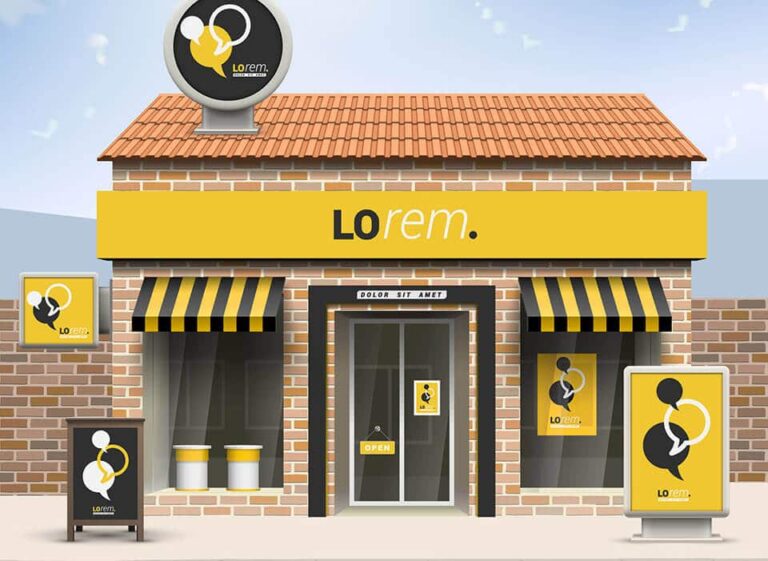What is Franchising? An Overview
There are nearly 800,000 franchise establishments in over 120 industries employing over 9 million people in the United States. Franchising is the dominant creator of small independently-owned businesses in the United States, and has been for decades.
Past and Present, Franchising is an Engine for Local Business Ownership
By Michael Seid, Managing Director, MSA Worldwide
Sharing a brand
It’s surprising how misunderstood franchising seems to be with the general public and government officials, given its long history in the United States and its importance to our overall economy. Franchising is merely the sharing of a brand between two independent companies:
- One company has an opportunity to offer.
- The other company invests in that opportunity by developing their own locally-owned business.
Franchising in the United States goes all the way back to Benjamin Franklin. Ben started a chain of printing shops and newspapers in the Colonies, and signed his first franchise agreement on September 13, 1731 with Thomas Whitmarsh for a printing shop in Charleston, South Carolina. Ben’s third franchise was with Elizabeth Timothy, who published the South Carolina Gazette and is recognized as our first female newspaper publisher, remarkable for those times.
What Ben did back then was really no different from what franchisors do today:
- He provided his apprentices and others with an opportunity to own their own businesses by giving them the training, equipment, and necessary tools to be successful business owners.
- Like today, day-to-day management of the franchised business was the sole responsibility of the local business owner, reflected in Franklin’s agreement with Whitmarsh: “That the Business of printing and the disposing of the Work printed shall be under the Care, Management and Direction of the said Thomas Whitmarsh and the working Part performed by him at his Expense.”
Franchising creates a reliable customer experience
Franchising exploded in the American economy after World War II, after the passage of a remarkable federal law called the “Lanham Act” that allowed for the sharing of a brand, so long as the brand owner controlled the quality of the products and services being delivered to the public.
How franchise systems achieve consistency is of little importance to consumers; what they really want when making purchasing decisions is that the product or service they buy from a branded location is the same, regardless of which location they buy it from. Who owns the location or who manages the business on a day-to-day basis is not important to the consumer; but local ownership is the essential fact that distinguishes a franchise system from its company-owned cousin.
The ability of franchise systems to achieve an extremely high level of consumer satisfaction, regardless of where the customer shops and regardless of who owns the business, is likely what confuses many people into thinking that local franchisees are merely managers of chain locations. Since 1731, franchisors and franchisees have learned the art of creating consistent and economically sustainable local businesses to such a level that maybe we have done too good a job in sharing a brand.
- Next time you are in a branded location, look for the sign that says “locally owned and operated.” You may be shopping at your neighbor’s business.
How big is the franchising industry?
There are nearly 800,000 franchised establishments in more than 120 industries employing over 9 million people in the United States. Franchising is the dominant creator of small independently-owned businesses in the United States, and has been for decades. Even during recessions, while other business models contract, franchising continues to expand – creating economic opportunities for new business owners and leading the nation in job creation.
Franchising has immeasurably improved our quality of life, and likely not a day will go by where the average American won’t find the opportunity to shop at a locally-owned franchise. Consumers appreciate that while the products and services they purchase are brand quality, the local business owners are their neighbors, attending the same houses of worship, sponsoring the same local events, having kids in the same schools, and caring like any resident about the quality of life in their community.
How does a business become a franchise?
The typical franchisor starts out as a small, locally-owned business that has achieved some success in its own neighborhood. Typically, this business owner starts on the path to franchising when a customer asks them how they can open a similar business; this question is often the trigger that results in new franchise systems being born. Over the next few months, the local business owners work with lawyers, consultants, accountants, bankers, web designers and other professionals to design and develop the franchise system – a considerable investment. This investment can also be risky, because no one can guarantee the emerging franchisor that anyone will ever choose to become their franchisee, regardless of how much they have invested in developing the system. Opening any business is risky, and both the franchisor and franchisee are risk takers.
Once the franchise system is ready, the emerging franchisor will generally spend months investing in advertising and marketing to recruit their first franchisee. If they are lucky, three or four months after they start offering franchises (including provision of their Franchise Disclosure Document or ‘FDD’ to prospective franchisees), their first Franchise Agreement will be signed. And if everything goes right, another nine months will pass before that first franchisee gets their location open for business and begins to pay the franchisor any licensing fee.
How does someone become a franchisee?
For the franchisee, signing a Franchise Agreement is only the beginning. To open and operate their franchised business, they must borrow money (often through a second mortgage on their home), find the right location, negotiate their lease, hire architects and builders, furnish their location with the necessary equipment and fixtures, buy the products and ingredients they will need, attend franchise training at the franchisor’s offices, attract employees, train their own management and staff, and market their new business in their neighborhood. They do it all in the hope and expectation that customers will come through their door.
Thankfully, sharing a brand with a recognized franchisor means they will often have customers who are already looking for that precise branded product or service even before the business is open. It is the sharing of a brand between two independent companies, with the neighborhood location owned and under the control of the franchisee, that makes franchising so successful.
Franchisees are independent businesspeople
My first job was at a locally-owned business, and most executives learn their basic work and management skills from similar first-rung positions. Franchising has become the largest trainer in the United States of entrepreneurial skills, and because of that, many franchises today are owned by individuals who started their careers working at entry-level positions, at market wages, in locally-owned franchised operations.
There have recently been assertions that franchisees and their franchisors are part of the same business entity, and that, therefore, a small independent franchisee should be considered part of the larger company for unionization and employment practices. It’s akin to saying that the tenant of an apartment and the owner of the apartment building are part of the same family because they share a common address, and makes little sense given the basic facts of the franchise relationship:
- Franchisors and franchisees are independent businesses that share a brand under a licensing agreement.
- From a practical point of view, the role of the franchisor is to grow their number of franchises and to support those franchised businesses before and after they are open.
- The role of the franchisee is to serve the public branded products and services in their local markets to the quality standards as defined by the franchisor; the franchisee has control over the day-to-day management of their business, including their employees.
Both franchisor and franchisee are independent businesses – the only real control that a franchisor has over its franchisees is ensuring that the system’s shared brand experience is delivered to the same level of quality that consumers expect and the law requires. The power of franchising is that over the past 230 years, we have learned how to share a brand and achieve the goal of consistent sustainability by allowing independent businesspeople to own and manage a business, and in the process create for themselves wealth and vital local employment opportunities.
Thriving, locally-owned businesses today have created the most successful growth in the middle class than at any time in history. Because of franchising, local wealth is created in communities; solid careers are born because of the skills learned in first-rung positions that can evolve into management or even franchise ownership. Consider that if you work for a non-franchised company, the chance that you can ever own a location under that brand is effectively zero. But for workers at a franchised location, that goal of business ownership is well within reach.
What is franchising? An incredible opportunity, when it is done well!
For a person looking to move up into the middle classes, franchising is the opportunity for wealth creation through the ownership of their own business. For our youth, franchising is the opportunity to get a first-rung job, gain experience in the workplace, and have independently earned money in their pockets. For older or more experienced workers, franchising provides opportunity to advance their management skills and possibly learn enough to start their own businesses. For the consumer, franchising provides assurance that when they make their purchasing decision they can do so with confidence, knowing that it is their neighbor who owns the business.
So take the opportunity to understand what franchising is all about. It is how the Great American Dream of independent business ownership is being achieved, every day, in the United States.
Headed by Managing Directors Michael Seid and Kay Ainsley, MSA Worldwide is the nation’s leading franchise consulting firm providing strategic advice and tactical services to established and emerging franchisors in the United States and internationally. MSA’s services include franchise program development, franchise relations strategies, franchise system expansion strategy, operation assessment and support, manuals and training programs, litigation and expert testimony.
Do you have questions about franchising your business?
MSA Worldwide provides expert guidance on building a successful and sustainable franchise business. Contact us today for a complimentary consultation.







